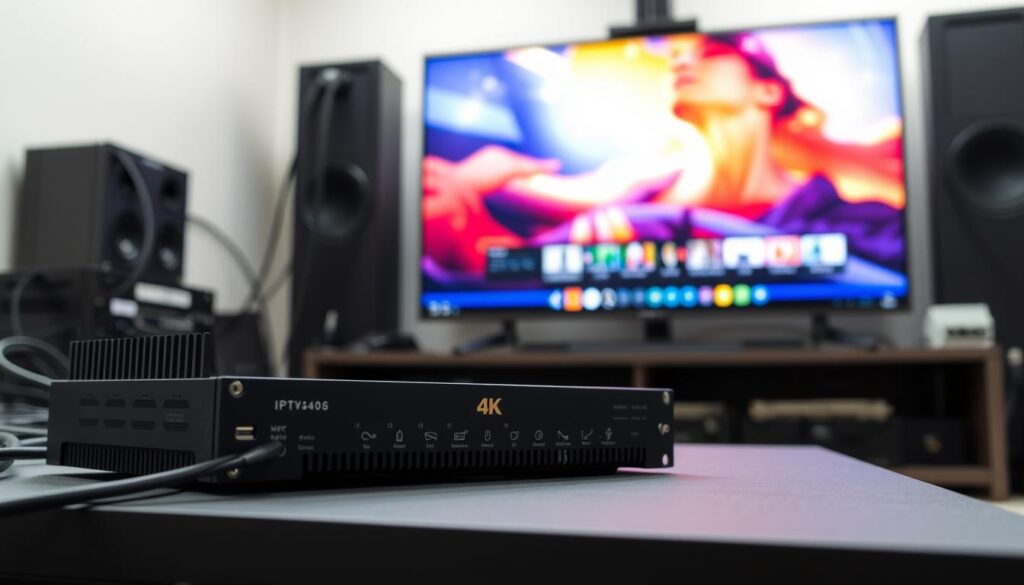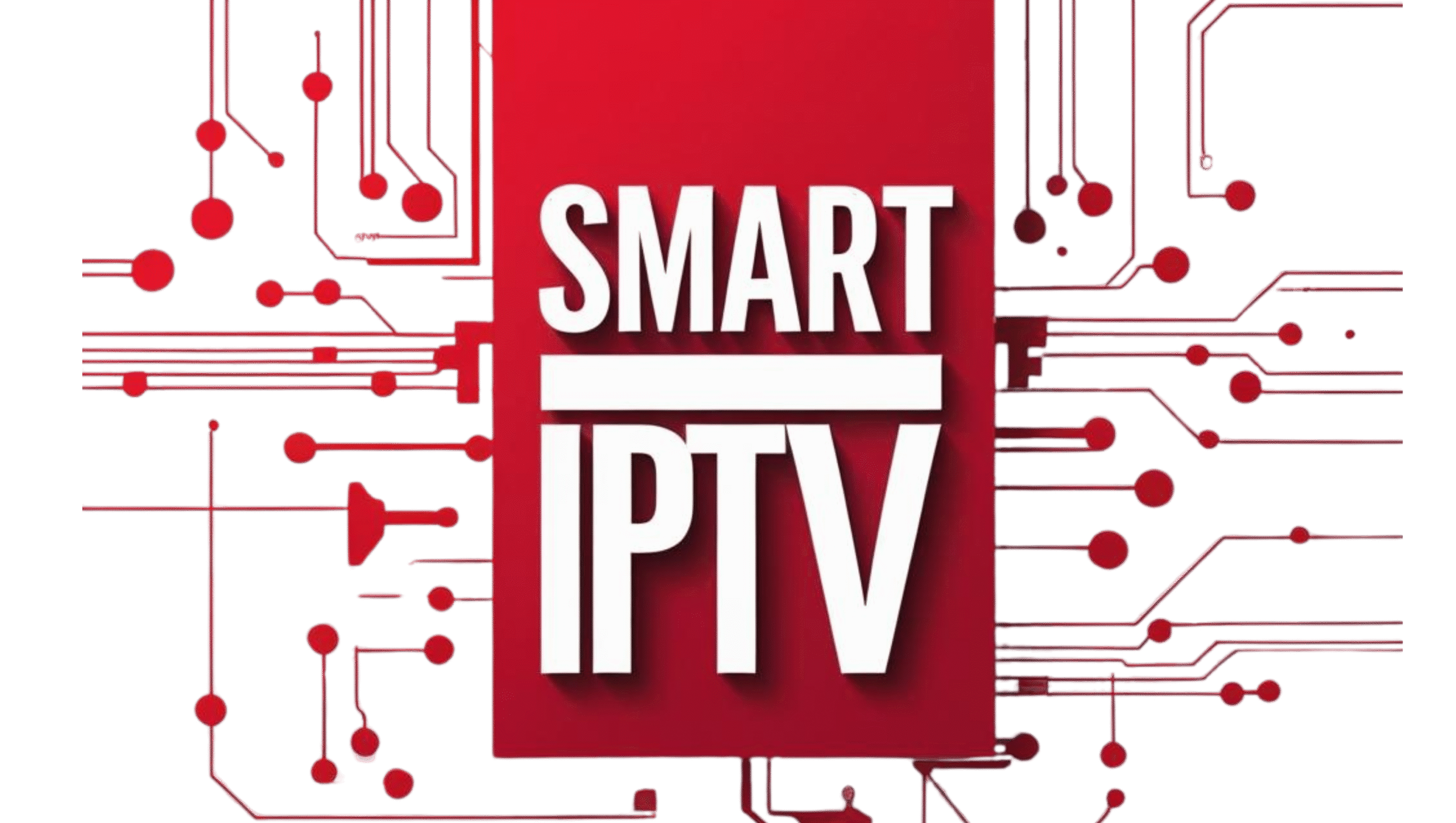Unlock 4K Streaming Potential with a Top-Rated 4k IPTV Encoder
The necessity of learning 4K IPTV Encoder technology is expanding as the demand for high-quality streaming grows. The addition of 4K resolution and IPTV broadcasting’s versatility has given viewers a better viewing experience.
Reasons Why 4K Resolution Is So Important and What It Is
However, a 4K image, with 4,000 pixels horizontally, is crisper and more detailed than an HD image. This intricate design looks fantastic on larger monitors, which attracts onlookers. An analyst states, “The advent of 4K resolution is a game-changer for the broadcasting industry, enabling a more engaging and interactive viewing experience.”
the progression of Internet Protocol Television Development
IPTV broadcasting has evolved from standard definition to high definition to 4K. This transformation is driven by better compression techniques and increased broadband internet infrastructure.
Contrasts Between Standard Definition and 4K Internet Protocol Television
Standard definition and 4K Internet Protocol Television differ mostly in broadcast resolution and viewing quality. You should expect 4K IPTV images to be four times sharper and more vibrant than HD ones. 4K IPTV has higher resolution and advanced features like HDR, which improves video quality.
With regard to live streaming, the function of a 4K IPTV encoder
A high-quality 4K IPTV encoding is very necessary in order to ensure uninterrupted transmission. It is necessary to have a 4K IPTV encoder for streaming in order to ensure that your content is delivered in the highest possible quality. More than just technology is involved here.

One of the Most Important Functions of IPTV Transcoders
Encoders for Internet Protocol Television (IPTV) are required for the digitization of audio and video signals for the purpose of online streaming platforms. Some of the most important characteristics include compression, encoding, and streaming of content in real time. A cutting-edge 4K IPTV encoder is capable of efficiently managing these obligations, so ensuring a feed that is both dependable and of high possible quality.
Information Regarding the 4K Streaming Technology
In order to stream in 4K resolution, it is necessary to fulfill a number of technological requirements. Some examples of its capabilities include compatibility with sophisticated video codecs such as H.265/HEVC and support for 4K resolution at high frame rates such as 60 frames per second. Take the necessary steps to verify that your 4K IPTV encoder satisfies these specifications in order to guarantee high-quality transmissions.
Restrictions on Bandwidth and Reductions Available for File Size
4K IPTV transmission requires significant bandwidth compression. Utilizing effective compression methods that significantly reduce the required bandwidth without compromising quality simplifies streaming 4K content. To ensure uninterrupted transmissions, a competent 4K IPTV encoder must handle complex compression tasks.
You Should Invest in a High-Quality 4k IPTV Encoder for the Following Reasons
One of the many benefits of utilizing a reputable 4k IPTV encoder is that it provides viewers with a more satisfying experience and gives you an advantage over your rivals. It is essential to have a high-quality encoder in order to provide viewers with first-rate streaming services that attract their attention.
The Enhancement of the Experience for the Audience

When you choose the best 4k IPTV encoder, you can rest assured that the content you stream will be perfect and of excellent quality. These encoders offer an improved viewing experience, which keeps audiences interested and engaged. Some of the traits that these encoders possess include sophisticated video compression and minimal latency.
Getting Your Broadcasting System Ready for the Twenty-First Century
You may assure your broadcasting arrangement will continue by buying a high-quality 4k IPTV encoder. In the rising demand for 4K video, you need the necessary gear to be competitive.
A Differentiating Determinant in the Distribution of Content
With a reliable 4k IPTV encoder, broadcasters can gain a competitive edge in content distribution. You should aim for constant, high-quality 4K streaming to stand out and attract more users.
Considerations to Make When Purchasing a 4K IPTV Encoder
However, you haven’t included the sentences themselves in this message. Please provide the sentences you would like me to review or rewrite based on that criterion..A 4K IPTV encoder is crucial for high-quality feeds, and its properties affect feed quality.
Standardization for video compression using H.264 and H.265 (also known as HEVC).
When it comes to stream efficiency and quality, the choice of video compression standard is of the utmost importance. Both the standard h.264 and the h.265/HEVC formats are currently in widespread use. H.264 is a long-standing standard that balances compatibility and quality. However, H.265/HEVC compresses better, allowing for higher-quality broadcasts at lower bitrates.
Alternatives for Input and Output
A 4K IPTV encoder’s input/output choices determine its versatility and device interoperability. Choose an encoder with HDMI, SDI, and IP inputs to ensure compatibility with a variety of sources. To ensure compatibility with your streaming infrastructure, evaluate the output alternatives, such as RTMP, SRT, and TS.
KPIs for both performance and latency
To assure operation, 4K IPTV encoders must be tested in real time for latency and performance. It is essential to take into consideration the frame rate, resolution, and encoding lag as crucial elements. Live streaming applications are required to have lower latency and higher frame rates in order to function properly.
These are the characteristics of redundancy and reliability.
Dependability and redundancy are needed to keep the service running smoothly. For constant high availability, seek for encoders with backup power and failover solutions. Remotely monitored encoders make troubleshooting and maintenance easier.

Choices for the Most Effective 4K IPTV Encoders in the Year 2025
As 4K streaming becomes more popular, choosing the right IPTV encoder is more important than ever in 2023. Many 4K IPTV encoders are available for a variety of applications and price points.
Services of the Highest Skill Level
Professional broadcasters benefit from high-end 4K IPTV encoders’ increased quality and expanded possibilities.. Both of these models are worthy of mention:
Haivision’s Makita X4 is the best.
In terms of dependability and versatility, the Haivision Makito X4 has garnered an outstanding reputation. Due to the fact that it supports HEVC/H.265, it is ideal for streaming in high definition at 4K resolution.
It is remarkable, ClearCaster.
Wowza ClearCaster is yet another premium alternative that provides professional-grade streaming capabilities. Its features include support for SRT and high-quality video encoding.
Options That Are Reasonable for Newly Beginning Broadcasters
People who are looking for a good balance between price and quality will find that 4K IPTV encoders that are affordable and in the middle of the price range are an excellent option. Here are some examples of notable models:
A prism offered by Teradek
Due to the high-quality video and varied streaming options that it offers, the Teradek Prism is an excellent option for broadcasters who are growing their operations.
The Videon EdgeCaster is a product.
Videon EdgeCaster is a reliable choice for broadcasters who fall somewhere in the middle of the spectrum because of its user-friendly design and its emphasis on endurance.
4K Encoders Can Be Obtained at a Reasonable Cost
For individuals who are severely limited in their financial resources, there are still a variety of 4K IPTV encoders available to pick from at prices that are affordable. An illustration of a model would be:
How are you today?
Additionally, the AJA HELO offers dependable streaming capabilities while remaining reasonably priced without compromising on quality.
Pearl of Miniature Epiphany
The Epiphan Pearl Mini is another affordable choice with excellent video encoding and streaming.
Consider video quality, latency, and infrastructure compatibility before choosing a 4K IPTV encoder. The alternatives described earlier include high-end TV and cheaper streaming.
An Analysis of How to Improve the Performance of Your 4K IPTV Encoder
For the best results from your 4K IPTV encoder, you need the right gear, software, and network setup. Knowing all the setup details is essential to getting the most out of it.
Required Hardware and Connections Involved
Ensure you have all the equipment before setting up your 4K IPTV encoder. A suitable 4K video source, enough RAM, and a strong CPU are needed. If video quality is important, get high-quality HDMI cables. It is recommended that HDMI 2.0 or later be used in order to get the ability to support 4K resolutions.

Guidelines for the Configuration of Software Recommended Practices
Configuring the encoder software is the next essential step, which must be completed once the hardware has been installed.Choosing the right video compression technique, such H.264 or H.265/HEVC, is crucial to balancing bandwidth and video quality. Make that the encoder produces the right format and bitrate for streaming.
Streaming in 4K while optimizing the performance the network provides
It is essential to optimize the network in order to ensure that streaming in 4K runs smoothly. Making sure there’s enough bandwidth for 4K’s huge data rates is crucial. QoS policies prioritize IPTV traffic and prevent delays and buffering. Routine network tests and modifications are necessary to maintain optimal streaming quality.
After carefully examining these criteria and properly configuring your 4K IPTV encoder, you may transmit high-quality content to your audience.
Concerns Regarding the Return on Investment and the Purchase Price of 4K IPTV Encoders
Before buying a 4K IPTV encoder, do a cost-benefit analysis. Broadcasters and content providers must weigh the costs and benefits of 4K streaming infrastructure upgrades.
Comparison of the Initial Expense to the Final Return
Due to equipment acquisition, installation expenses, and infrastructure adjustments, a 4K IPTV encoder may be expensive. However, these initial expenses may not be justified by long-term advantages. 4K IPTV encoders could improve the watching experience by increasing premium service upsells and customer retention.
Over time, new compression standards like H.265/HEVC improve video quality, efficiency, and protection against future broadcasting standard changes.
Compared to plans based on one-time sales, subscription-based plans
Broadcasters can buy a 4K IPTV encoder upfront or subscribe. Making a single purchase involves a larger initial commitment, but it may save money over time. Subscription arrangements may have cheaper initial costs but increase over time.
The budget, expected use, and support and upgrade needs should be considered while choosing between these types.
Calculating the Return on Investment
Broadcasters should consider both direct and indirect benefits when calculating a 4K IPTV encoder’s ROI. Direct benefits include cash from premium 4K content offers, while indirect benefits include brand reputation and customer satisfaction.
Comparing the net gain—the difference between the investment and revenue—is enough to compute ROI. A complete analysis should consider a range of issues, including the potential for cost savings from avoiding infrastructure upgrades and the operational expenses reduced by efficiency.
Broadcasters can make smart investments by calculating the potential return on investment (ROI) and considering all 4K IPTV encoder costs. This will enable them maximize their investment and adapt to the changing media market.
IPTV Encoders for 4K Resolution: A Common Use Case
4K IPTV encoders are revolutionizing video consumption for live events and security systems. Their high-tech capabilities boost video transmission quality and dependability, making them useful to many companies.
The broadcasting of live events
The transmission of live events is undergoing a profound transformation as a result of the introduction of 4K IPTV encoders, which are capable of transmitting video streams in ultra-high quality. Consequently, they make it possible for broadcasters to provide high-definition information with minimal delay, thereby giving a viewing experience that is uninterrupted.
Communication for Professional and Educational Purposes
The delivery of high-quality video content is made possible by 4K IPTV encoders, which are used in educational and corporate settings to facilitate effective communication. These tools are leveraged for training sessions, webinars, and virtual events, which ultimately results in increased engagement and participation.
A Distribution System for Entertainment and Media
The entertainment industry reaps significant benefits from 4K IPTV encoders since these encoders make it possible to disseminate content of a high quality to a significantly larger audience. This technology is capable of supporting a wide variety of channels, such as streaming services and online media sources.
Computerized surveillance and security systems
4K IPTV encoders are an important component in the realm of security and surveillance because they are responsible for transmitting high-resolution video feeds. They improve the efficiency of monitoring systems by providing images that are more detail-oriented and providing surveillance that is more reliable.
With the implementation of 4K IPTV encoders, businesses in any industry have the potential to enhance the dissemination of their video content, thereby providing their consumers with an experience that is more captivating and immersive.
Identifying and Fixing the Most Frequent Problems with 4K IPTV Encoders
It is essential to handle any potential problems that may arise with your 4K IPTV encoder in order to guarantee uninterrupted transmission. Finding solutions to common issues can significantly improve the quality of your broadcasting experience.
Concerns Regarding Bandwidth and Networking
Wideband problems are one of the most significant obstacles that must be overcome when streaming 4K IPTV. Buffering, slowness, and poor video quality are all examples of issues that might arise from insufficient bandwidth. Examine the capacity of your network and, if necessary, think about improving it. This will help reduce the problem.
Deterioration of the Video’s Quality
Another common problem is a decline in the quality of the video picture. This may be the result of incorrect encoder settings or constraints imposed by the hardware. Take the necessary precautions to ensure that your encoder is properly configured and that your equipment meets the minimum criteria for 4K streaming.
Concerns Regarding Synchronization and Latency
Issues with latency and synchronization can lead to desynchronization of audio and visual presentation. In order to reduce the amount of latency, you should check the settings of your encoder and make sure that your equipment is calibrated correctly.
Compatibility Barriers to Overcome
It’s possible that the encoder and other pieces of equipment will not be compatible with one another. Check to see sure all of the devices are compatible with one another and that the firmware is up to date in order to avoid similar issues.
Taking care of these typical problems will allow you to considerably enhance the performance of your 4K IPTV encoder and guarantee that you will have a streaming experience of the highest possible quality.
A Conclusion Regarding the Maximization of Your Investment in a 4k IPTV Encoder
It is necessary to have a full understanding of the capabilities and applications of a 4K IPTV encoder in order to get the most out of making an investment in one. By making an investment in a 4K IPTV encoder of great quality, broadcasters have the ability to considerably improve their streaming services, thereby offering viewers with an exceptionally high-quality viewing experience.
Because of its many advantages, a 4K IPTV encoder is an invaluable tool for any broadcasting operation. These advantages include improved video quality, the ability to future-proof broadcasting settings, and the opportunity to obtain a competitive advantage in content distribution. It is vital to take into consideration a variety of elements, including video compression standards, input/output options, and network optimization, in order to receive the most beneficial results from this technology.
It is possible for broadcasters to assure a high return on investment by selecting and installing a 4K IPTV encoder according to meticulous consideration. The utilization of a 4K IPTV encoder can assist in staying ahead of the curve and capitalizing on upcoming opportunities in the industry. This is because the demand for high-quality streaming is expected to continue to increase significantly.
Q&A
Which of the following is the primary purpose of a 4k IPTV encoder?
The basic purpose of a 4k IPTV encoder is to encode and stream 4K content in an efficient manner, which enables broadcasters to provide their audiences with content of a high quality.
What are the most important aspects that should be looked for in a 4k IPTV encoder?
When picking a 4k IPTV encoder, it is important to look at features such as video compression standards (H.264, H.265/HEVC), input/output options, latency and performance metrics, as well as dependability and redundancy features.
How do I choose the best 4k IPTV encoder for my requirements?
When selecting the finest 4K IPTV encoder, it is important to take into consideration a number of aspects, including your financial constraints, the kind of content you intend to stream, and the technological requirements necessary for 4K streaming. Do some research on the best available choices, such as the Haivision Makito X4 and the Epiphan Pearl Mini, and evaluate the characteristics and advantages of each of these possibilities.
What are the advantages of utilizing a 4k IPTV encoder of superior quality?
The use of a high-quality 4k IPTV encoder improves the viewing experience for viewers, ensures that your broadcasting infrastructure is prepared for the future, and gives you an advantage over other businesses in terms of content distribution. In addition to this, it guarantees uninterrupted streaming and lessens the likelihood of encountering technical problems.
What are some common problems that can occur with my 4k IPTV encoder?
In order to resolve usual issues, it is necessary to check for deficiencies in bandwidth and network, as well as degradations in video quality, concerns regarding latency and synchronization, and compatibility limits. For assistance, please consult the user manual or get in touch with the support staff of the manufacturer.
What are the factors to consider when purchasing a 4k IPTV encoder?
When purchasing a 4k IPTV encoder, it is important to consider the initial investment in comparison to the long-term benefits, the subscription model in comparison to the one-time purchase model, and the return on investment (ROI) to ensure that the device meets your requirements and budget.
Can I use a 4k IPTV encoder for live event broadcasting?
The answer is yes; 4k IPTV encoders are frequently used for live event broadcasting since they enable high-quality video streaming and are able to match the requirements of live events.
What is the difference between a standard definition encoder and a 4k IPTV encoder?
The video quality of a 4k IPTV encoder is far higher than that of a standard definition encoder, which is only capable of encoding at lower resolutions. This is because a 4K encoder is intended to accommodate this resolution.
